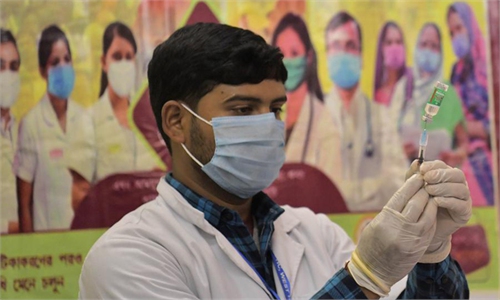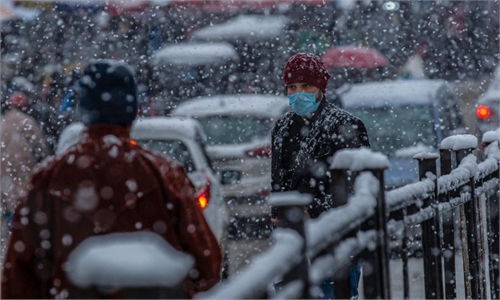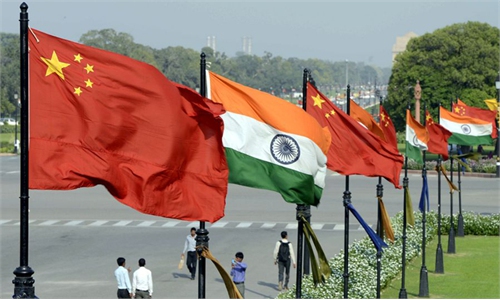
Photo: VCG
India's free shipments of millions of doses of COVID-19 vaccine to South Asian countries have drawn growing attention, which is being labeled by some media outlets as "vaccine diplomacy." India itself has been brutally pummeled by the virus, and more than 153,000 Indians have died.In the eyes of some, India's vaccine exports is being politicized in an attempt to balance China's growing influence in the region, while more people see this as a scheme played by the Western media who aspire to continue to assault China, which will do more harm than good to the international community in defeating the pandemic.
It is not long ago before Western media also labeled China's vaccine exports as engaging in "vaccine diplomacy." It is conceivable that some observers will be inclined to compare vaccine exports of the two countries, reframing it as confrontation between China and India in terms of global vaccine supplies.
Yet, China's so-called "vaccine diplomacy" actually represents open and transparent international aid and medical resource collaboration. And it is very cynical to suggest a "vaccine diplomacy war" to break out between China and India. India's vaccine export is a welcome development for the region, and one we are glad to see.
At present, some Asian countries are far behind in vaccine procurement and rollout, while market demand for the vaccines keeps growing. No matter India, China or other Western countries, as long as they can fill the demand gap by making use of their capital, technology and production advantages, it is a laudable act of kindness.
But still, during the supplying process, India will need to demonstrate its capability of ensuring the quality of its vaccine production and delivery, especially after a recent fire at the Serum Institute of India raised questions about the disruptions to its vaccine manufacturing.
Moreover, ensuring the vaccine's cold-chain transportation will also pose challenges to India's logistical system.
India has always had the dream of raising its global profile by becoming a major regional economic power leading neighboring countries. That ambition will be realized at the price of shouldering the responsibilities for the region. In the case of the global pandemic, providing as much help as possible to the regional countries is an apparent manifestation of the responsibility of a regional power. But the premise of all these is to ensure the quality of production and logistics.
In this sense, it is essential for India to fully exploit the potential of cooperation in the industrial chain of supplying the vaccines to improve efficiency and quality in a more economical way. Whether in terms of cold-chain logistical facilities or raw materials for production, there is room for cooperation between China and India.
China has always been willing to support other developing countries within its capacity when it comes to vaccine distribution. And we hope India can abandon the "vaccine diplomacy" mindset to make joint efforts to provide more vaccines to people in less-developed countries who are facing scourge of the virus.



